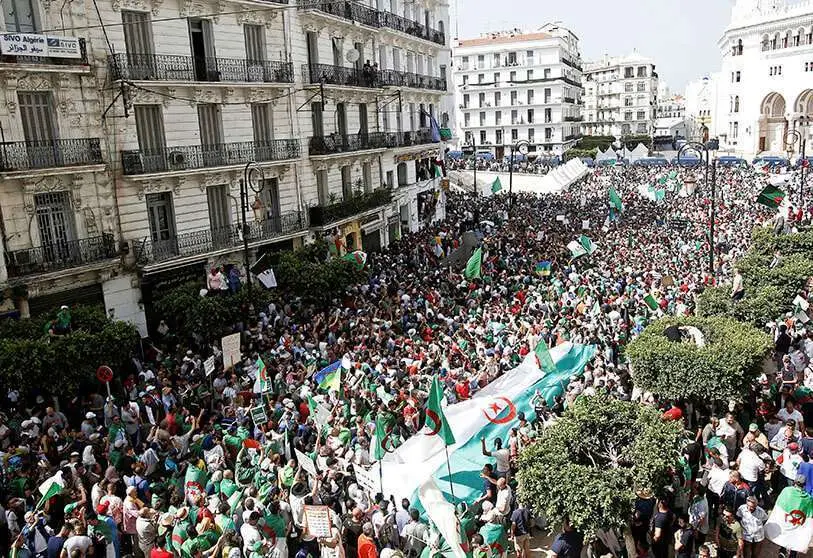The Algerian Hirak and Popular Unity

The mass citizens' movement in Algeria, Hirak, which began a year and a half ago and succeeded, among other things, in removing Abdelaziz Bouteflika and his corrupt court from power, has two goals still to achieve: to equip itself with a programme, a policy and objectives capable of offering an alternative to the regime it is trying to overthrow; and to organise itself as a front in which all the country's religious trends, cultures, thought and options are represented. In society they exist and coexist; in the Hirak they do not yet.
ATALAYAR interviewed the representative of one of these currents of thought, Mourad Dhina, a nuclear physicist with experience working at CERN in Switzerland and leader of the Rachad movement, which brings together different Islamic and secular currents, united by democratic objectives. Rachad's assets include the organization of different forums in which leading members of the National Liberation Front (FLN), the Socialist Forces Front (FFS), the Rally for Culture and Democracy (RCD), the Islamic Salvation Front (FIS), human rights organizations, and a great arch of thought with intellectuals and political activists participated.
What has changed politically in Algeria since the outbreak of the Hirak?
The most important achievement of the Hirak Movement is to have broken down two walls: that of fear and that of ideological polarization. In fact, we can observe that the current strategy of the regime is to impose a return, activating all the mechanisms of intimidation, saying for example that "the Hirak no longer makes sense since Bouteflika has left", or that "they are now parties telegraphed by foreign countries, Qatar or Turkey"; and also promoting the pseudo-democrats who want to re-impose the old complaints of "Islamists against laymen". In short, this is a rather difficult period for the Hirak, particularly with the COVID-19 crisis.
Do you find the fight against corruption and the trials conducted against both civilians and the military positive?
No one's cheating. The fight against corruption is taking the notorious corrupt away, but it is also an internal settling of scores in power. Those who have imprisoned their friends of yesteryear are just as corrupt as they are. Power has simply sacrificed some of its elements, but the nature of power, which remains in the hands of the military, has not changed.
How does Rachad position itself today on the Algerian political chessboard?
Rachad is an important actor of the Hirak. He has managed to establish strong links with other actors in civil society and the political class; he is part of the Hirak and does everything possible to bring about unity within it, while respecting the diversity that reflects Algerian society, which wants a real change of regime.

There was a time when there was a broad front for democracy and the rights of the people, in which political parties and organizations like Rachad participated. What became of all this?
This front continues to exist and reflects a wide swath of society. The issue of the representativeness or leadership of the Hirak remains unresolved, but there are permanent contacts between the main actors based on the same political line.
Do you think there could be a political amnesty for prisoners of conscience and political exiles?
This is really a secondary issue. The objective is more ambitious: to obtain, preferably through direct negotiation with the military general staff, which is the real power, a transparent and credible road map to a true civil and legal state.
Bouteflika is no longer in power, and many political and military leaders who supported him for years are in prison. Do you think the system has changed?
The faces of the system have changed, and Bouteflika's mafia system has collapsed. But the real power, that of the military, is still there, and this is the real problem we have. There is a new generation of officers coming in that could be part of a change, but the Hirak needs to continue and prove that he will not accept anything that is not real change.









